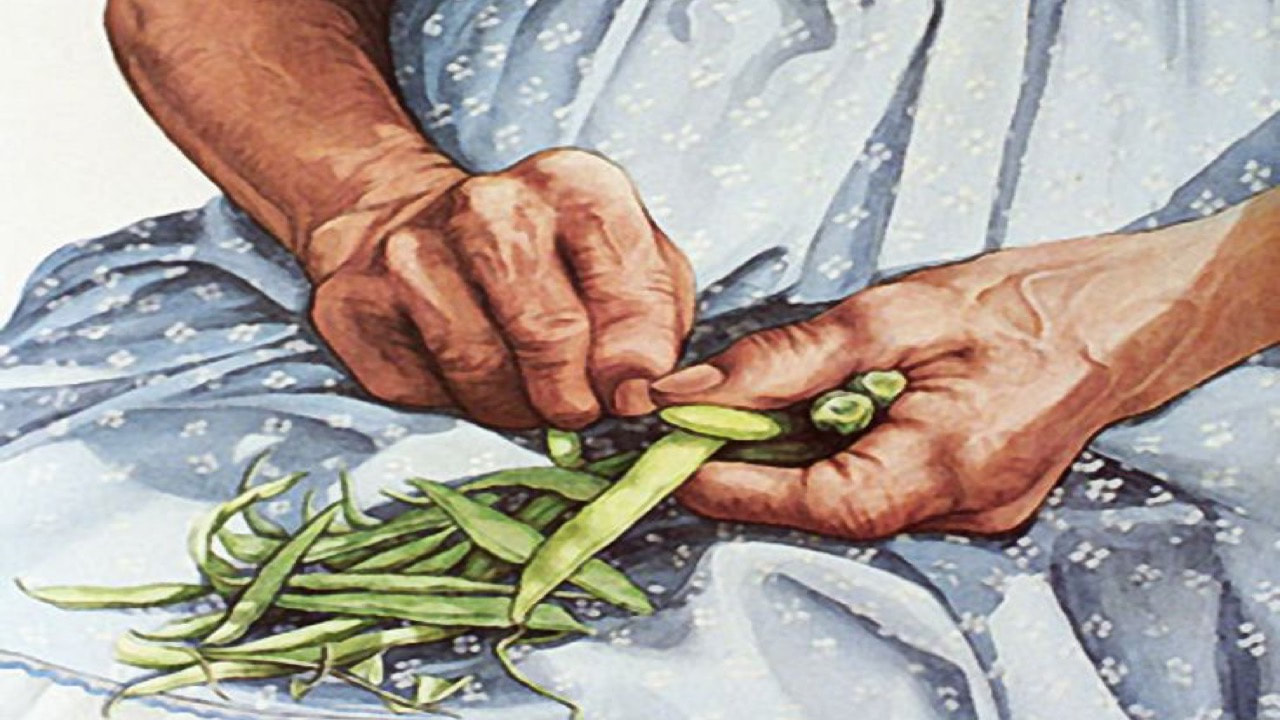|
Years ago, Duck Dynasty patriarch Phil Robertson stirred up a bit of a media firestorm with some comments he made about how black people were happier in the old days. Here are Robertson's words as reported in The Atlantic: "I never, with my eyes, saw the mistreatment of any black person. Not once. Where we lived was all farmers. The blacks worked for the farmers. I hoed cotton with them. I’m with the blacks, because we’re white trash. We’re going across the field .... They’re singing and happy. I never heard one of them, one black person, say, ‘I tell you what: These doggone white people’—not a word! ... Pre-entitlement, pre-welfare, you say: Were they happy? They were godly; they were happy; no one was singing the blues." The article launches into a boring and predictable screed about how Robertson is glossing over the brutality of racism in the Jim Crow South. Viewing the world only through the limited lens of modern racial politics, they cannot understand any other paradigm. Modernists view old-time Southerners like Robertson as something odd and repulsive, and in their dismissiveness, they miss the point he is trying to make. Thinking whites are inherently privileged, they cannot conceive that poor whites, or "white trash," were about as poverty-stricken and low status as the black folks they worked beside. They have no awareness of the cordial and often warm relationships that existed throughout the South between black and white people, regardless of status. And they have no means of comprehending the profound truth of the phrase "They were godly; they were happy" - that people in far worse objective circumstances in the past were often far more content than those in modern times because they found peace and strength in their faith. A phrase that was common in Robertson's generation and those prior, which is seldom heard these days, is "ain't no use complaining." This may sound to some like a statement of despair and helplessness, but it was not - it was quite the opposite. "Ain't no use complaining" was a statement of determination made by someone who viewed the world with clear-eyed realism and a sense of duty. "Ain't no use complaining" was an acknowledgement that life is inevitably tough and unfair, and one could only play the cards they had been dealt. "Ain't no use complaining" was a statement made by someone who was lacing up their boots, putting on their hat, and heading out the door to face the challenges of the day. "Ain't no use complaining" was an affirmation of an intention to do something proactive, rather than passively wallow in self-pity. My grandmother was a girl during the Great Depression. Due to hardship, she and her siblings were separated. Most were sent to live with relatives in different states, but the two oldest were placed in an orphanage. When I heard this story and reacted with shock, she replied matter-of-factly, and without a trace of bitterness, "It had to be done." "It had to be done." There's another phrase you don't hear anymore. People once accepted that hard decisions had to be made, and that despite these difficulties, one must continue to persevere. Today, complaining is favorite national pastime for most, and a career for some. Misfortunes are not something to be overcome, but are cherished opportunities to gain attention and, if you're lucky, to leverage for the greatly prized "victim" status. Think of the things that evoke histrionics in the media these days: incidents of rudeness or tactlessness, even some barely perceptible ones that have been termed "microagressions." The prevalence of "hate crime hoaxes," offenses people report which we later learn they have inflicted upon themselves, is proof of the rewards of victimhood. Victimhood is embraced, celebrated, and broadcast as widely as possible. Contrast this attitude to the modesty, dignity, and self-respect of prior generations, even in the "oppressed" classes. My mother recalls her parents' black friends express shame and disappointment at the behaviour of their children during the "civil rights" protests of the 1960s, not because of some internalized slave mentality that made them believe they should accept an inferior place in society, but because they wanted their children to pursue their goals in a way that showed respect for God, themselves, and others. Virtue signalling is another modern affliction. I cannot count the times my grandparents quietly stepped in to provide for the needs of their neighbors and friends; sharing food or material goods, pitching in to help fix, build, or clean, offering consolation or encouragement. It is hard to imagine that any of the people I knew of their generation, black or white, would have broadcast their misfortunes or their accomplishments to 500 of their closest friends on the internet. They made their choices not for praise, but out of a sense of responsibility to their neighbors and genuine compassion. You know, the qualities virtue-signallers like to say Americans (other than themselves) lack.
3 Comments
|
AuthorThe Carolina Contrarian, Anne Wilson Smith, is the author of Charlottesville Untold: Inside Unite the Right and Robert E. Lee: A History Book for Kids. She is the creator of Reckonin' and has contributed to the Abbeville Institute website and Vdare. She is a soft-spoken Southern belle by day, opinionated writer by night. She loves Jesus, her family, and her hometown. She enjoys floral dresses and acoustic guitar music. You may contact Carolina Contrarian at [email protected]. Archives
April 2024
|

